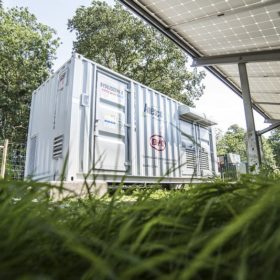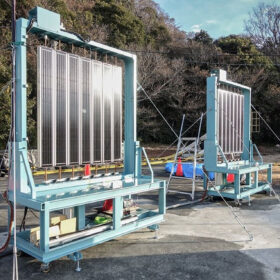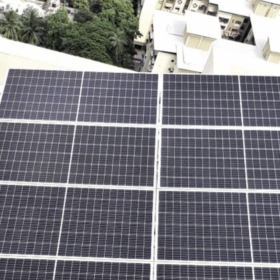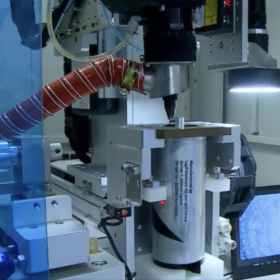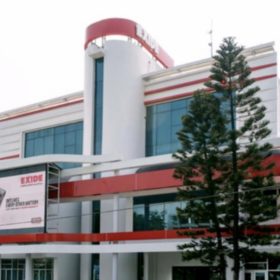Czechia reinvests in loan scheme for C&I solar, storage installations
Czechia has increased funding for its interest-free loan program for commercial and industrial (C&I) solar and storage projects to CZK 3 billion ($132.2 million) after strong demand exhausted the previous budget.
EU approves aid for 1.5 GWh storage rollout in Czechia
The aid will take form of direct grants which will cover up to 50% of the investment cost of supported projects.
Czechia installs 967 MW of solar in 2024
Czechia installed 967 MW of solar in 2024, driven by residential and commercial and industrial (C&I) projects, which accounted for 930 MW of the total, says the Czech Solar Association (Solární Asociace).
Novel BIPV concept integrates louvers to enhance power production
Scientists have proposed a building-integrated PV system that integrates airflow to cool the panels and control room temperature. The system, which also acts as a shading device, can reportedly mitigate drops in power generation efficiency without additional energy consumption.
India’s rooftop solar scheme could drive $13.9 billion opportunity
India’s PM Surya Ghar Muft Bijli Yojana initiative (PM-SGMBY) could create a INR 1.2 trillion ($13.9 billion) opportunity for PV module, inverter, and component manufacturers, benefiting project developers and engineering, procurement, and construction (EPC) contractors, according to SBICAPS.
China begins building first GW-scale residential VPP
China is building its first gigawatt-scale residential virtual power plant (VPP) in Jiangsu province. The project will connect millions of high-power household appliances to a cloud-based energy pool to improve grid stability and boost renewable energy use.
India eyes self-reliance in battery cells with lithium recycling push
India could achieve self-reliance in battery cell manufacturing by domestically recycling lithium and reusing it in batteries, an Indian government official claimed this week at a battery manufacturing conference in in New Delhi.
Exide Industries invests $17.2 million in lithium battery plant in India
Kolkata-based Exide Industries has invested INR 1.49 billion ($17.2 million) in Exide Energy Solutions through a rights offering. The investment will support the construction of a greenfield lithium battery plant in Bengaluru, India, in addition to other funding needs.
China’s CGN New Energy announces winning bidders in 10 GWh BESS tender
CGN New Energy has selected seven winners from 50 bidders in its 10 GWh battery energy storage system (BESS) tender, with the lowest bid at CNY 0.458/Wh ($63/kWh).
US bans five Chinese PV firms under Uyghur Forced Labor Prevention Act
Under the Uyghur Forced Labor Prevention Act (UFLPA), the US authorities have banned five Chinese companies from providing products and services in the United States.

